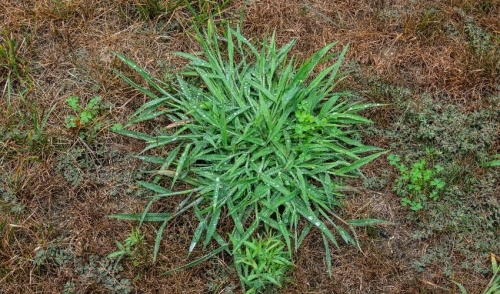Does Your Dog Have a Flea Allergy?
Fleas are a common annoyance to many dog owners, but these small pests can be a much bigger problem when a dog may be allergic to fleas. Recognizing if your...

Efficient, thoughtful pasture management can work wonders for controlling parasites in your livestock. By understanding the connection between parasites and your pasture, you can implement management techniques to make the most of every field while minimizing parasite problems.
Parasites don’t just live in the guts of animals, they’re also present in any pasture those animals frequent. Different types of worms and bacteria can live in soil and manure, and will thrive in mulch, damp vegetation, and even in the wood of fences or trees that may have been bitten or gnawed by livestock. Parasites are spread through saliva and mucus and on hooves and dirty coats, and can live on bitten plants after animals have grazed. Fleas, ticks, and other biting insects may also pick up and carry certain parasites, able to reinfect other animals. Because parasites can be so prolific, it is impossible to completely eliminate them from any pasture.
All livestock will carry certain parasites, and in fact some parasites are essential for gut health and proper digestion. When animals have too many parasites, however, they will show poor condition and other symptoms, such as tattered coats, weight loss, anemia, diarrhea, and more severe illnesses. Fortunately, proper pasture management can help keep parasites at healthy and controllable levels.
The key to controlling parasites in a pasture is to keep the parasite load from becoming too high for animals’ health. There are a number of techniques that can help minimize parasite loads while still allowing livestock access to the pasture.
For the most effective parasite control, use as many techniques as possible to manage the pasture and minimize parasites. Monitor livestock closely for signs of parasitic infection and adjust management techniques as the weather and seasons change to keep parasite loads minimal.
Managing a pasture with an eye toward parasite control not only keeps animals healthier, but it can be cost effective as well when fewer chemical treatments are needed to kill parasites. If animals are not picking up parasites from the pasture, they will not require deworming and other veterinary treatments as frequently, which also helps out a budget and lowers the stress on the animals. No matter what livestock you keep or which pastures you use, parasite-minded pasture management can be a great tool for keeping healthy livestock and a healthy bottom line.

We currently do not have any events scheduled.

Fleas are a common annoyance to many dog owners, but these small pests can be a much bigger problem when a dog may be allergic to fleas. Recognizing if your...
Comments